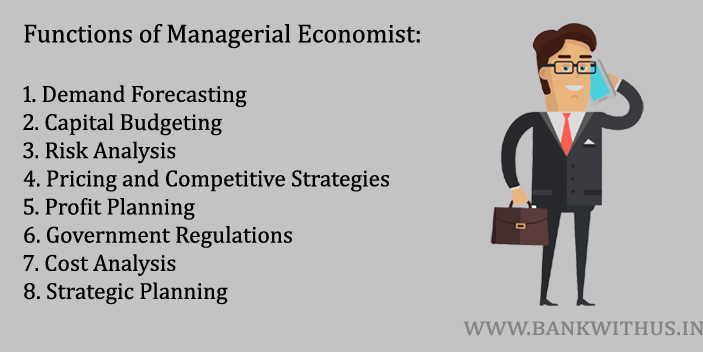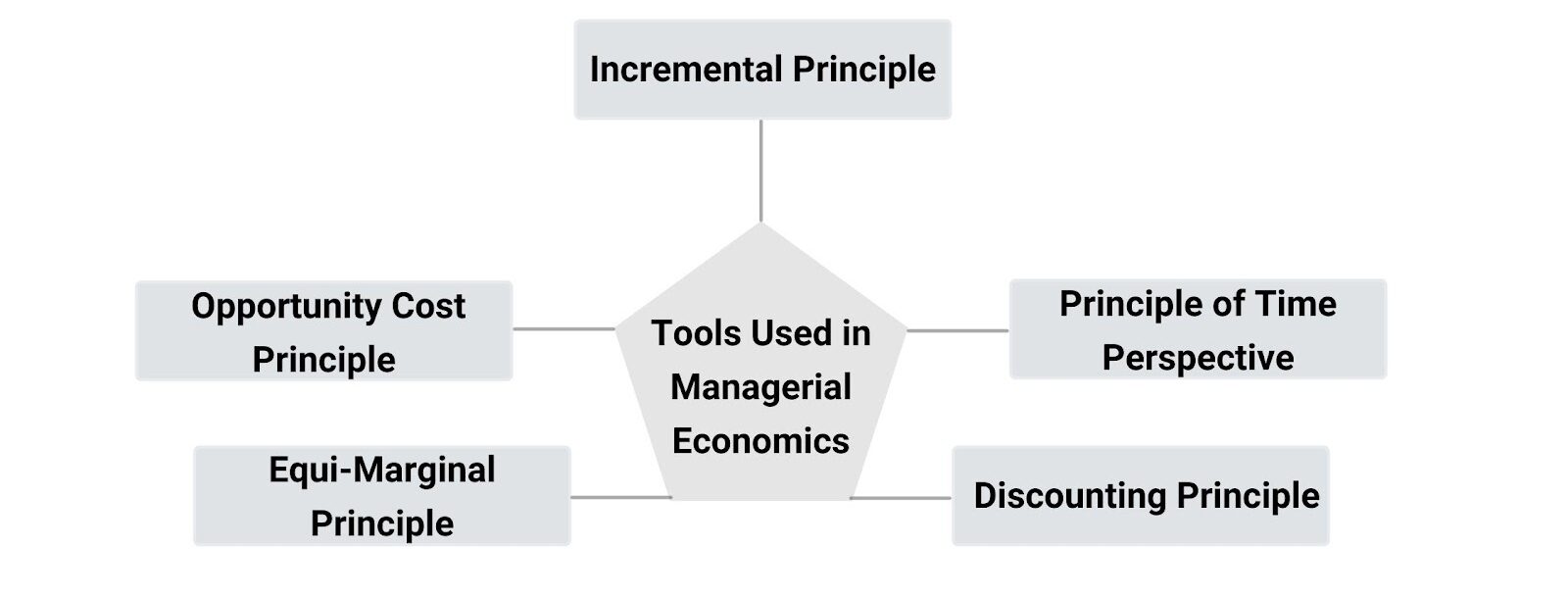Top 10 Key Responsibilities of a Managerial Economist You Should Know
Table of Contents

The responsibility of a managerial economist has become increasingly important in the rapidly changing business environment of today. But who is a managerial economist? A managerial economist applies economic theories and methodologies to find feasible solutions to business problems and is thus very instrumental to firms in strategic planning and decision-making. A managerial economist helps businesses in navigating market complexities efficiently.
This article delves into the top 10 key responsibilities of a managerial economist that are important for organisational success.
How is Managerial Economics Important?
Managerial economics is a branch of economics that applies microeconomic analysis to the decision-making techniques of businesses and other management units. It draws heavily from quantitative methods, such as operations research and programming, and statistical methods like regression analysis in the absence of certainty and perfect knowledge.
Managerial economics is typically taught to business, economics, and MBA students. It is used by managers to help inform their decisions and by economists to better understand the behavior of organisations.

*scribd.com
Top 10 Ways Managerial Economists Shape Business Outcomes
In this blog post, we will be discussing 10 crucial roles and responsibilities of managerial economists to increase productivity.
1. Leverage Economic Trends to Boost Organisational Productivity
The current economic climate is characterised by slow but steady growth and a rising cost of living. This has resulted in a number of trends that businesses can take advantage of to increase productivity. One trend is a shift in consumer spending towards services and experiences over products. Another trend is the rise of the gig economy, which allows more people to work remotely.
2. Set Clear Goals and Optimise Resource Allocation
Clear and measurable goals help allocate resources more effectively. Analyse current processes to identify inefficiencies and areas for improvement. Invest in training and development to ensure employees have the skills to use resources effectively. Utilising technology to streamline processes can significantly increase productivity.
Another one among the roles and responsibilities of managerial economists in organisations includes deciding on topics such as capital budgeting. They not only identify investment projects but also evaluate whether these projects are consistent with the company’s strategic objectives, and they estimate the expected profits. This responsible act ensures that the company’s capital is invested in projects that are the best performers in terms of value and that can subsequently promote growth in the future.
3. Use Simulation Techniques to Evaluate Productivity Decisions
Develop models and simulations to test the impact of various decisions on productivity. Monte Carlo simulation is a type of computer simulation that uses random sampling to generate data. System dynamics is a simulation technique that combines mathematical models and graphical representations. Discrete event simulation can provide insights into the behaviour of a system over time.
4. Analyse Economic Policies and Their Organisational Impact
One of the important responsibilities of managerial economists is researching macroeconomic and microeconomic policies to understand their effects on productivity. Microeconomic policies, which are determined by individual businesses and industries, have an effect on specific sectors or businesses. Macroeconomic policies are designed to affect the overall performance of an economy, such as inflation, interest rates, and unemployment. These policies are typically implemented by governments and have a large-scale effect on an entire nation.
Another one of the responsibilities of a managerial economist is to set internal policies that are in tune with the economic environment. The policy work they do involves assessing the impact of various policy alterations on the firm’s performance and suggesting changes that would make the policies more efficient and effective. This will involve pricing, production, marketing, and personnel policies.
5. Build Personal and Organisational Productivity Strategies
Essentially, the managerial economists are the ones who unearth the potential of the strategy. They uncover economic, market, and performance data, which are then applied with the aim of clarifying executives about setting goals, accessing the market, and also making the active operations optimum. They play a strategic role in the decision-making process and ensure that the decisions are based on a profound economic analysis.
Develop plans and strategies to improve productivity at the individual and organisational levels. Automate tasks and processes to reduce manual labor and increase efficiency. Plan out a daily to-do list and prioritise tasks. Use technology to automate tasks and streamline processes. Take regular breaks throughout the day to maintain focus and avoid burnout.
6. Manage Technology Integration for Productivity Enhancement
Monitoring the performance of technology solutions and troubleshooting any technical issues that arise. Developing and leading training programs for employees to ensure proper use of new technology solutions. Assisting with the selection of new tech solutions and evaluating vendors. Designing and maintaining technical documentation related to technology solutions, as well as monitoring their security.
7. Collaborate Across Departments to Meet Business Goals
Working with other departments to ensure that objectives and goals are met in a timely and cost-effectively. Analysing data to identify areas for improvement and develop strategies to address them and developing and implementing systems and processes to improve operational efficiency. Managing and overseeing the work of staff members.
8. Improve Employee Performance Through Data and Feedback
Managers, supervisors and staff are asked to help improve employee productivity by analysing data and metrics to understand and improve employee performance. Monitor employee performance and provide feedback to managers. Identify and implement process improvements to streamline workflow and provide guidance and training to staff on best practices. Develop and manage incentive programs to motivate employees.
9. Analyse Customer and Financial Data to Identify Inefficiencies
Examining customer feedback and complaints to identify areas of improvement and areas of inefficiency. Conducting surveys to evaluate customer satisfaction and identify areas for improvement. Analysing financial data to examine areas for cost-saving and efficiency. Studying customer purchase patterns to identify improvements in product offerings.
10. Monitor, Measure, and Enhance Workforce Productivity
Monitoring and measuring employee productivity on a regular basis. Analysing the data collected from the productivity metrics to identify areas for improvement. Developing and implementing strategies for improvement in areas of weakness to increase productivity. Engaging employees in greater collaboration, communication, and problem-solving.
Ultimately, taking on these responsibilities by managerial economists help businesses reach their full potential and become more successful. But where can you learn a field as interesting as managerial economics? You can take up an online MBA program and specialise in managerial economics within it. One such program is an online MBA from Manipal University Jaipur.
The Online MBA Program from Manipal University Jaipur is designed to give students a flexible learning experience. The course can be completed at any time, from any location, and without having to take leave from work.
As a student, you will be exposed to a global network of alumni, faculty, and industry partners. If you are considering enrolling in an Online MBA Program, then Manipal University online courses are the best choices for you.

*bankwithus.in
The Role of a Managerial Economist in 2025 and Beyond
Every business manager must take the crucial managerial economics responsibilities to increase overall productivity. By doing so, they will be able to analyse better and assess their employees, identify areas where they can improve and develop strategies to increase productivity. Additionally, they will be able to ensure that company goals and objectives are met, increase morale and foster a positive work environment.
As the economies worldwide intertwine more and become more volatile, the importance and duties of a managerial economist will be even more crucial in the future. From the analysis of the dynamics of price fluctuations and disruption in the supply chain to the presentation of sustainable practices and ESG (Environmental, Social, and Governance) impacts, managerial economists are playing a very important part in the development of strategic business.
With the firms that are looking for new ways to absorb and evolve in the market full of uncertainties, the situation where a professional who is able to detect fine economic signals and turn them into the business policy that can be carried out to make the company better will continue to be in high demand.

*analyticssteps.com
Conclusion
Managerial economist job is multi-faceted and makes an indelible contribution to the successful running of an enterprise. Understanding the role and responsibilities of a managerial economist is essential for businesses aiming to thrive in today’s complex economic landscape. They are the ones who, by using economic principles to solve business problems, give the companies an opportunity to make right decisions, to save or make the best use of resources and to grow in a sustainable way.
Jaro Education stands at the forefront of this transformation. As a premier upskilling and higher education platform, Jaro offers expertly curated programs across diverse domains—including in-depth courses in Managerial Economics. To explore the top online MBA programs tailored for working professionals and future-ready leaders, register with Jaro Education today.
In a world where data-driven thinking and strategic insight define successful leadership, mastering disciplines like Managerial Economics is more crucial than ever. This is where trusted learning partners make all the difference.
Frequently Asked Questions
Who is a managerial economist?
A managerial economist is a professional who applies economic theories, tools, and methodologies to solve business problems and aid decision-making within an organisation. They bridge the gap between theoretical economics and practical business strategies.
What are the key responsibilities of a managerial economist?
The key responsibilities of a managerial economist include demand forecasting, cost analysis, pricing strategies, risk assessment, market trend evaluation, and advising management on economic implications of business decisions.
How do the responsibilities of a managerial economist impact business performance?
The responsibilities of managerial economists enhance business performance by providing data-driven insights, improving efficiency, guiding strategic planning, and helping companies adapt to changing market dynamics.
What skills are essential for fulfilling the role and responsibilities of a managerial economist?
A managerial economist should possess strong analytical thinking, problem-solving skills, knowledge of economic modelling, proficiency in statistical tools, and a good understanding of business operations and market behaviour.
















